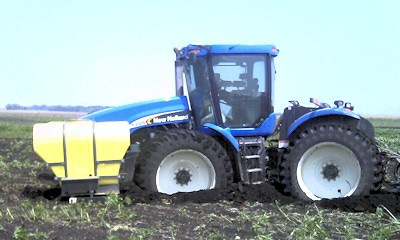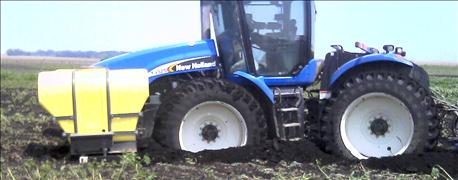
Two of the most dumbfounding things I’ve encountered in my professional career relate to pesticide training programs. I was an ag teacher when the pesticide certification program for farmers who would buy restricted use pesticides was rolled out.

PESTICIDE TRAINING: PARP sessions can be offered on a wide variety of topics. One Whitford focused on recently was how to extract vehicles, including sprayers and tractors, that might be stuck, and do it safely.
As I recall, there was so much confusion and resistance from farmers, many of whom weren’t used to being forced to attend meetings that the process nearly broke down. The idea was simple- environmental pressures wanted farmers to be more accountable if they were going to buy and apply pesticides. So Indiana, as required by the federal government, began a program by which farmers had to pass a written test to get a license to buy restricted use pesticides.
I will never forget hosting a meeting in a high school cafeteria, and watching a county agent literally give out answers that were going to be on the test. What kind of system is this?
The second example occurred just a few years ago. The recertification program was in place that allowed famers to renew their applicator permit by attending educational sessions approved for pesticide applicator training. It still goes on today.
I was standing by the registration table before a meeting started, and the registration person called a farmer over. She told him he already had enough points, and wouldn’t need to sign in. He not only didn’t sign in, he left! Are you kidding me?
He missed out on hearing Fred Whitford, director of Purdue University Pesticide Programs, explain the need to secure loads and transport pesticides safely.
Whitford was heavily involved in developing this recertification program, where recertification became the focus instead of retesting every five years. Here’s an exclusive interview with him about how it developed, and how the system operates currently.
Indiana Prairie Farmer: Fred, you came to Purdue in 1991. How did you become involved in the private applicator recertification program?
Whitford: I was charged in helping streamline pesticide education. When I got here, many farmers’ licenses were coming back up for renewal. The process at the time was for them to take a test every five years at the county Extension office. It didn’t take me long to figure out that there wasn’t much education going on. I thought there had to be a better way.
IPF: What did you do?
Whitford: I partnered with Extension educators, Purdue administrators, the Office of Indiana State Chemist and Indiana Farm Bureau, Inc. to push for a program where farmers could attend educational sessions to get credit toward their permit.
IPF: How does the program operate today?
Whitford: The current program has been in place for more than a decade. Private pesticide applicator permits are good for five years. Farmers can opt to retest or earn continuing education credits to renew their permit. Using the recertification process a farmer attends three programs in five years, but can’t get all three in one year. The beauty of it is that county Extension educators can tailor the programs to topics that fit their counties best.
IPF: Have there been any major changes to the system?
Whitford: We have added value to the education that farmers are receiving by keeping them current on topics that pertain to their farms, communities and county. When requirements for fertilizer applicators to have a license came along, they became part of the same system. Some of the programs are now on fertilizer application methods. What it means is someone who didn’t need a pesticide applicator license before but does know due to the fertilizer law can get it through attending these same training sessions.
About the Author(s)
You May Also Like




